Dale Wiley is an angler and lure maker from Ellwood City, Pennsylvania, who has been making musky lures for longer than I have been alive.

He made his first lure 43 years ago in 1976 with he was 12 years old, and is still going strong today at 55. His hand-crafted cedar baits are a staple in many fishermen’s boxes in the eastern US and Canada.
He started making lures to replicate the old Heddon four-inch Vamp, a shallow-running lure on which his cousin caught his first musky during a family trip to Pigeon Lake, Ontario, in 1972. It was that fish that got Dale hooked into wanting to catch more muskies, and that he did. In this Angler Spotlight, I am really excited to interview a friend who has taught me a lot about trolling for muskies. His theories and lures have helped my clients and me put some huge fish in the boat over the course of the last 20 years.
MHM: What’s your favorite way to fish?
DW: Well, I am known as a guy who only trolls, but for the first 10 years of fishing all I did was cast. I enjoy all ways as long as I am catching fish, but I am getting older and trolling is easier on the joints. It is my most confident way of catching fish. It just produces more and, more importantly, bigger fish.
MHM: I have learned a lot from you and we have talked in private about fishing strategies. What is your approach to trolling?
DW: I guess my approach to trolling is speed. I like to move the lures and my lures (Wiley Lures) are built for running faster. I like to troll from 4.5 to 5.5 mph depending on the activity level of the fish. It doesn’t always have to do with water temperature. I have caught a lot of fish in very cold water going these speeds. If they are active they will catch the bait.
MHM: What areas do you like to fish and how do you approach an area?
この記事は Musky Hunter の August/September 2019 版に掲載されています。
7 日間の Magzter GOLD 無料トライアルを開始して、何千もの厳選されたプレミアム ストーリー、9,000 以上の雑誌や新聞にアクセスしてください。
すでに購読者です ? サインイン
この記事は Musky Hunter の August/September 2019 版に掲載されています。
7 日間の Magzter GOLD 無料トライアルを開始して、何千もの厳選されたプレミアム ストーリー、9,000 以上の雑誌や新聞にアクセスしてください。
すでに購読者です? サインイン
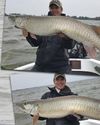
What can Current Do For You?
WATER FLOW IN LAKES IS SUBTLE AND OFTEN OVERLOOKED. BUT MUSKIES USE IT, SO WHY SHOULDN’T YOU?
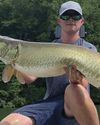
Mountain State Muskies In Spring
CATCH MUSKIES DURING TIMES WHEN NOTHING IS PREDICTABLE
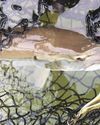
Winter Presentations For Southern Rivers
Winter has arrived, yet in the South it’s still mild enough to keep fishing with the exception of maybe a week or two of an Arctic front.

Tune Up For The Season Ahead
Have you started making your plans for the upcoming fishing year?
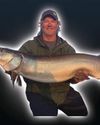
Rob Manthei
Guide Rob Manthei’s love for the Vilas/Oneida County region of northern Wisconsin is deeply rooted. His father and grandfather started taking him there on fishing trips when he was just two years old, and he began guiding full-time at the age of 25.
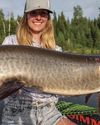
Find The Right Structure In Deep, Clear Water
With breathtaking scenery, vast amounts of water, and complex and diverse structure, clear water Canadian Shield lakes offer some of the most sought-after musky fishing in the world. A bucket-list destination for the passionate and determined angler, there’s something truly special about being in the sanctuary of the great Canadian Shield lakes.
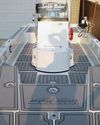
Multi-Species Or Bay Boat ... You Make The Choice
Is there really such a thing as a perfect musky boat? There are so many variables to choose from in the market today. Do I want a casting or trolling boat? Aluminum or fiberglass? Welded or riveted? Do I want a tiller, side console, dual console, or full windshield?
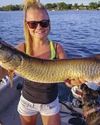
Region To Region
Region To Region
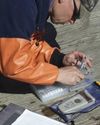
Genetic Study Yields Answers
STUDY SUGGESTS LEECH STRAIN IS NOT THE ‘SILVER BULLET’ FOR WISCONSIN MUSKY WATERS
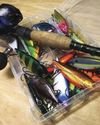
Crawling Crankbaits To Catch Cold Water Muskies
Crankbaits catch plenty of muskies during spring, summer and fall, but the key to catching ’skies in the very early cold water season on these lures involves some special tricks.